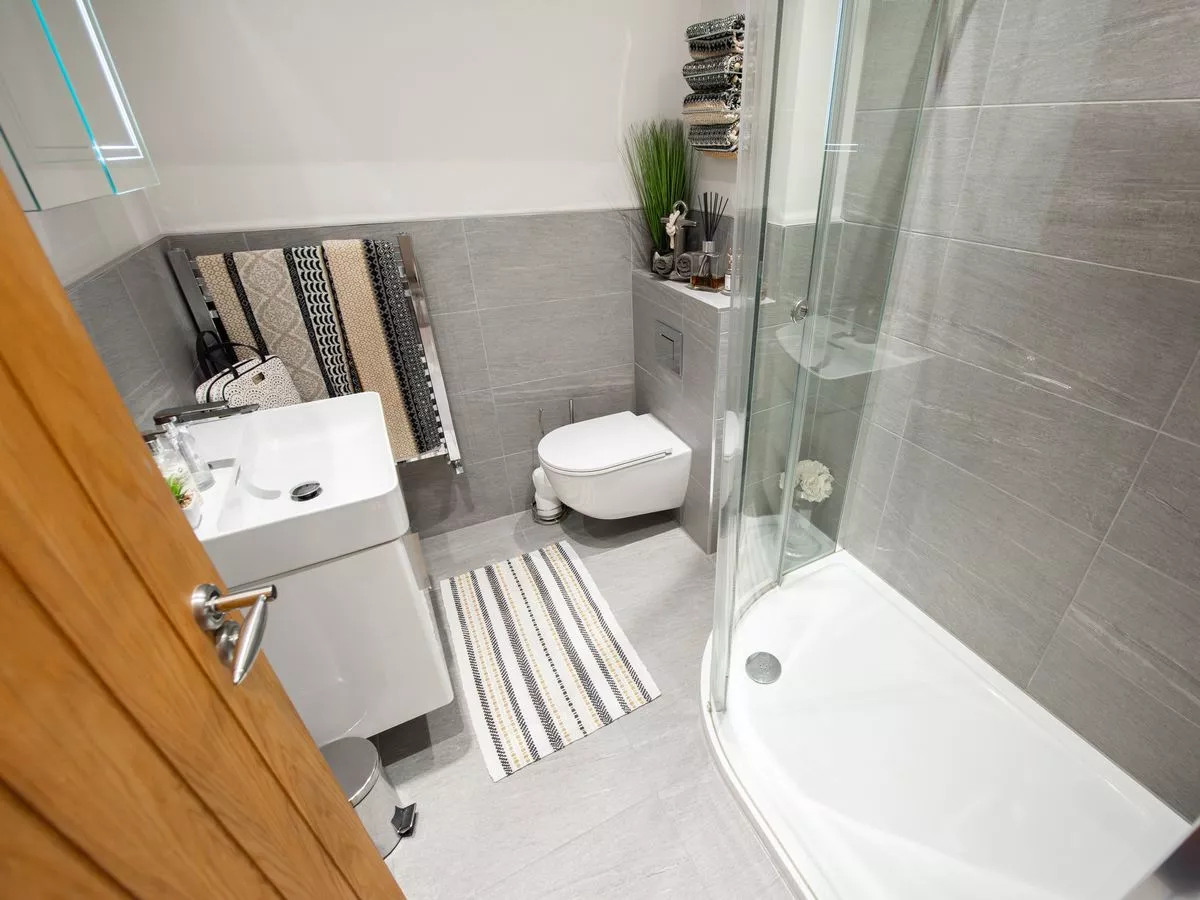Copyright dailyrecord

Most of us consider the bathroom as one of the most hygienic spaces in our homes. It's where we spruce up, brush our teeth and prepare for the day ahead. However, experts are ringing alarm bells that some of the items we use daily could actually be swarming with germs and making us ill. Bathroom and kitchen specialists at Plumbworld warn that due to their warm and damp conditions, bathrooms are ideal breeding grounds for bacteria and mould. Over time, everyday items can accumulate germs that may lead to skin issues , stomach disorders or respiratory problems if they're not regularly cleaned or replaced. Here are the five things Plumbworld suggests you should either bin or thoroughly clean before they impact your health . Your toothbrush is one of the most frequently used items in your bathroom but also one of the filthiest. The bristles can harbour bacteria and remnants of toothpaste, and if it's stored too close to the toilet, it can collect germs from the fine mist released when you flush, known as 'toilet plume', which can settle on nearby items like toothbrushes. Over time, the brush stops cleaning effectively and can actually spread germs in your mouth instead of eliminating them. Many people often take to social media to ask others how frequently they should change their toothbrush , however it's important to get the correct advice. Dental professionals recommend swapping your toothbrush every three months, or sooner if the bristles start to fray. Always rinse it thoroughly after use, shake off any excess water and store it upright to allow it to dry fully. If a family member has been unwell, it's wise to replace all toothbrushes immediately. Loofahs and shower sponges are excellent for sloughing off dead skin, but this also makes them ideal breeding grounds for bacteria. They collect dirt, moisture and soap residue, and when left hanging in a damp shower, they rarely dry properly. To keep them clean, rinse loofahs after each use and hang them somewhere airy to dry thoroughly. Clean them weekly in hot water or soak them in a vinegar solution to kill germs. They should be replaced every month or two, or sooner if they start to smell, change colour or feel slimy. Towels can hold onto more than just water. Used multiple times a day, they accumulate dead skin, oils and bacteria especially if they're left damp between uses. Even when they seem clean, they can be a hidden source of unpleasant smells and germs. Plumbworld's experts advise washing bath towels every three or four uses at a high temperature of at least 60°C. Make sure they're completely dry before folding or hanging them back up. If they begin to emit a musty odour or feel coarse, it's time to swap them out ideally every couple of years to ensure cleanliness and freshness. Bath mats are frequently neglected items that can turn into hotbeds for dampness and bacteria. They absorb water each time you exit the shower, and if left wet, mould can rapidly develop underneath, particularly on mats with rubber backs that trap water. The optimal way to prevent this is to launder bath mats weekly on a high-temperature cycle and make sure they're thoroughly dried, either outdoors or on a radiator. Avoid leaving them flat on the floor when damp, as this retains moisture. If your mat has dark spots or a musty scent, it's recommended to bin it and purchase a new one. It's simple to lose track of how long a bottle of shampoo or a tube of face cream has been lingering in your bathroom. However, once opened, these products can harbour bacteria, especially in a warm, humid environment. Utilising expired toiletries can lead to irritation of your skin, eyes or scalp. According to Plumbworld, even the most spotless bathrooms can conceal a surprising number of hygiene hazards. They advise checking expiry dates every few months and discarding anything that's been open for more than a year. Keeping lids tightly sealed and storing products in a cool, dry place helps prevent bacteria from spreading. Even if your bathroom appears pristine, it's worth taking a second glance at the items you use daily. Simple habits like changing old toothbrushes, washing towels regularly, and making sure bath mats are properly dried can turn your bathroom into a much healthier space for you and your family.



